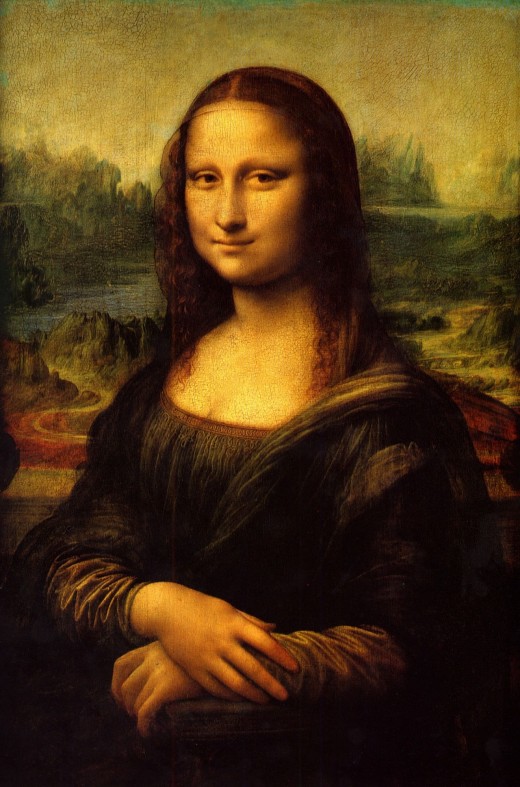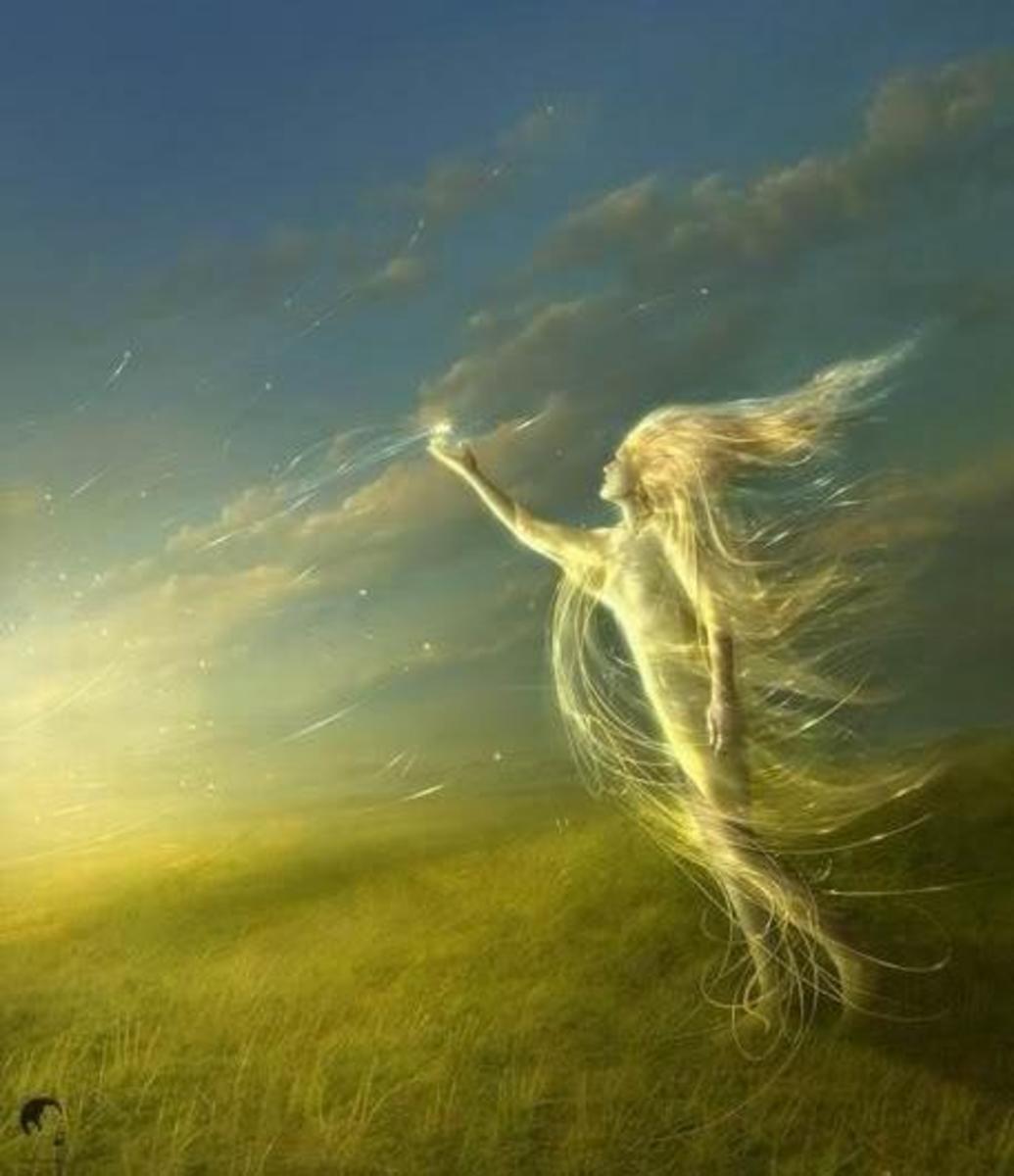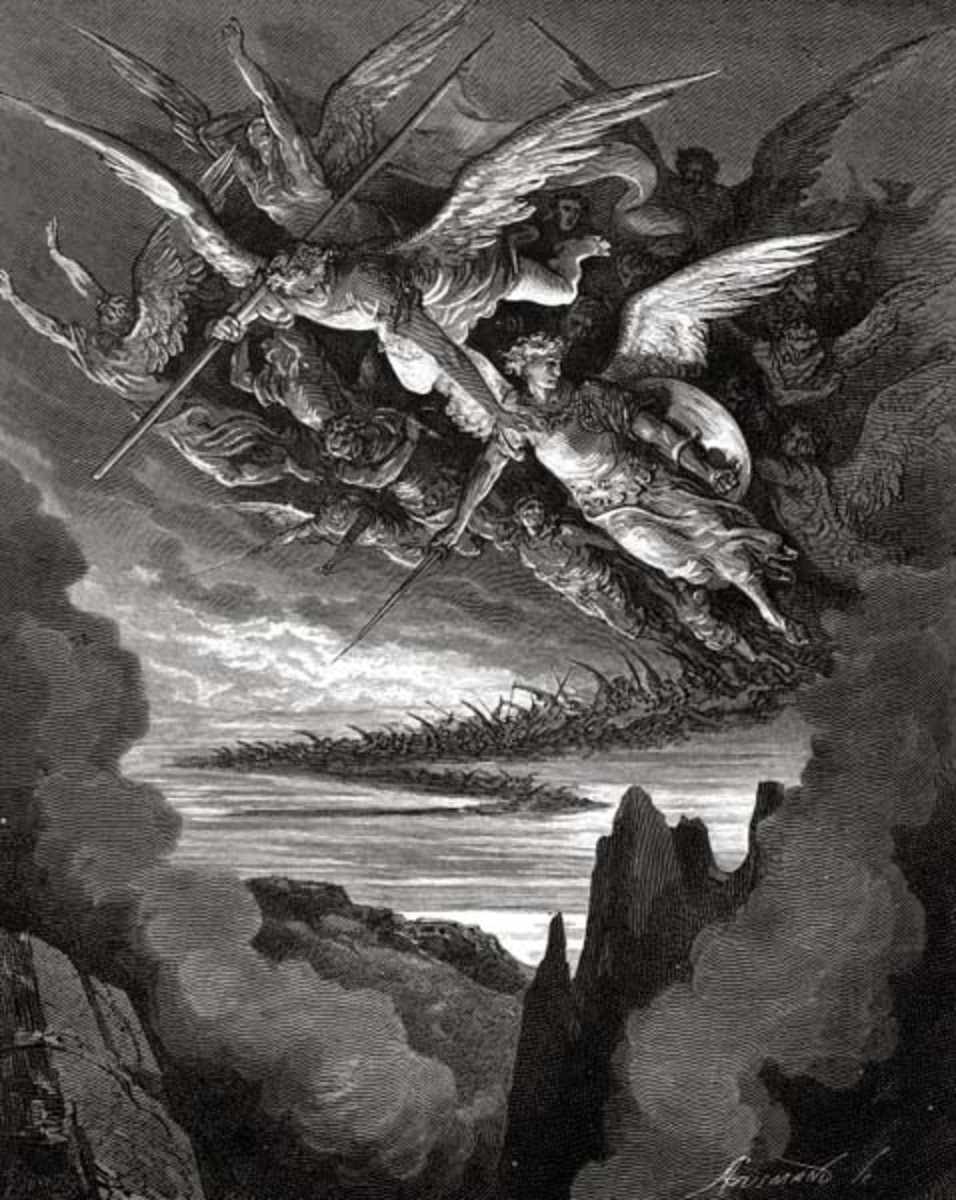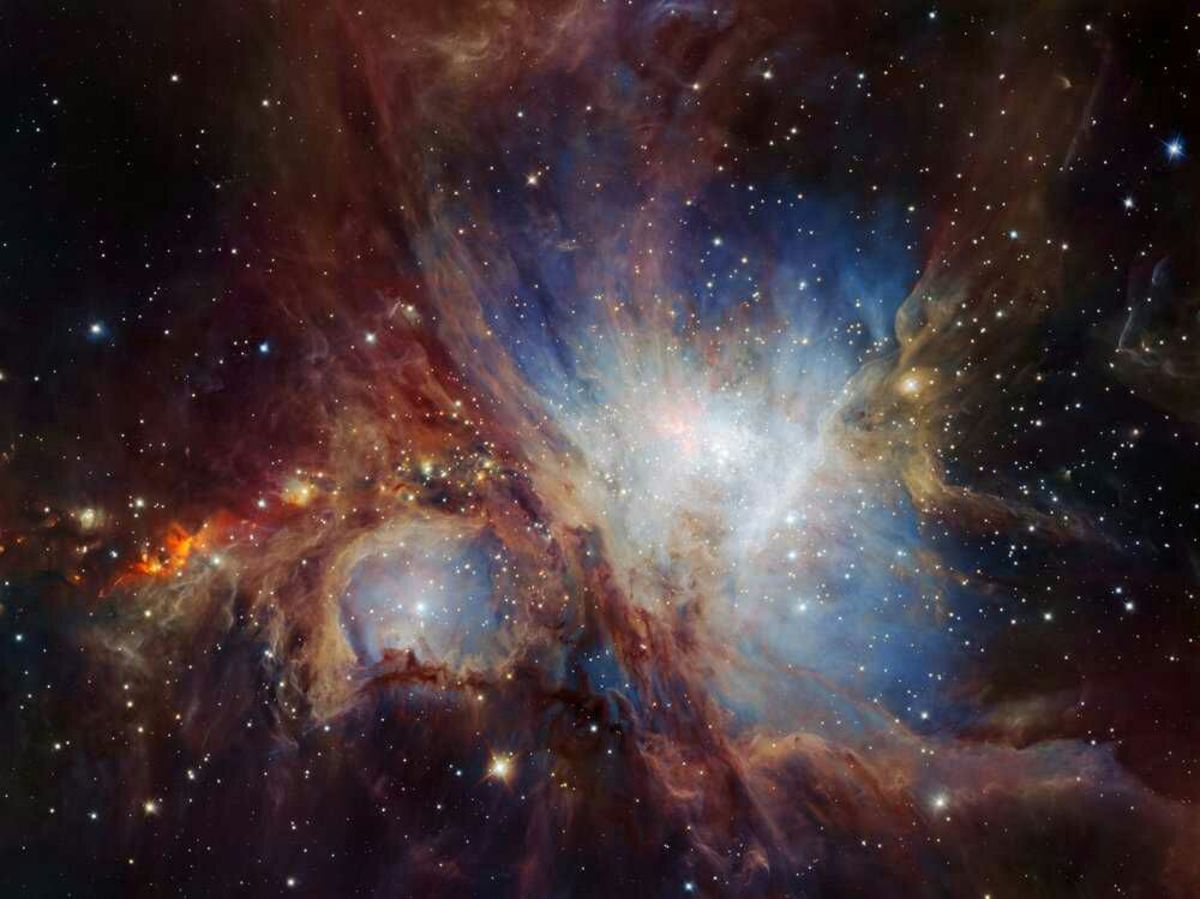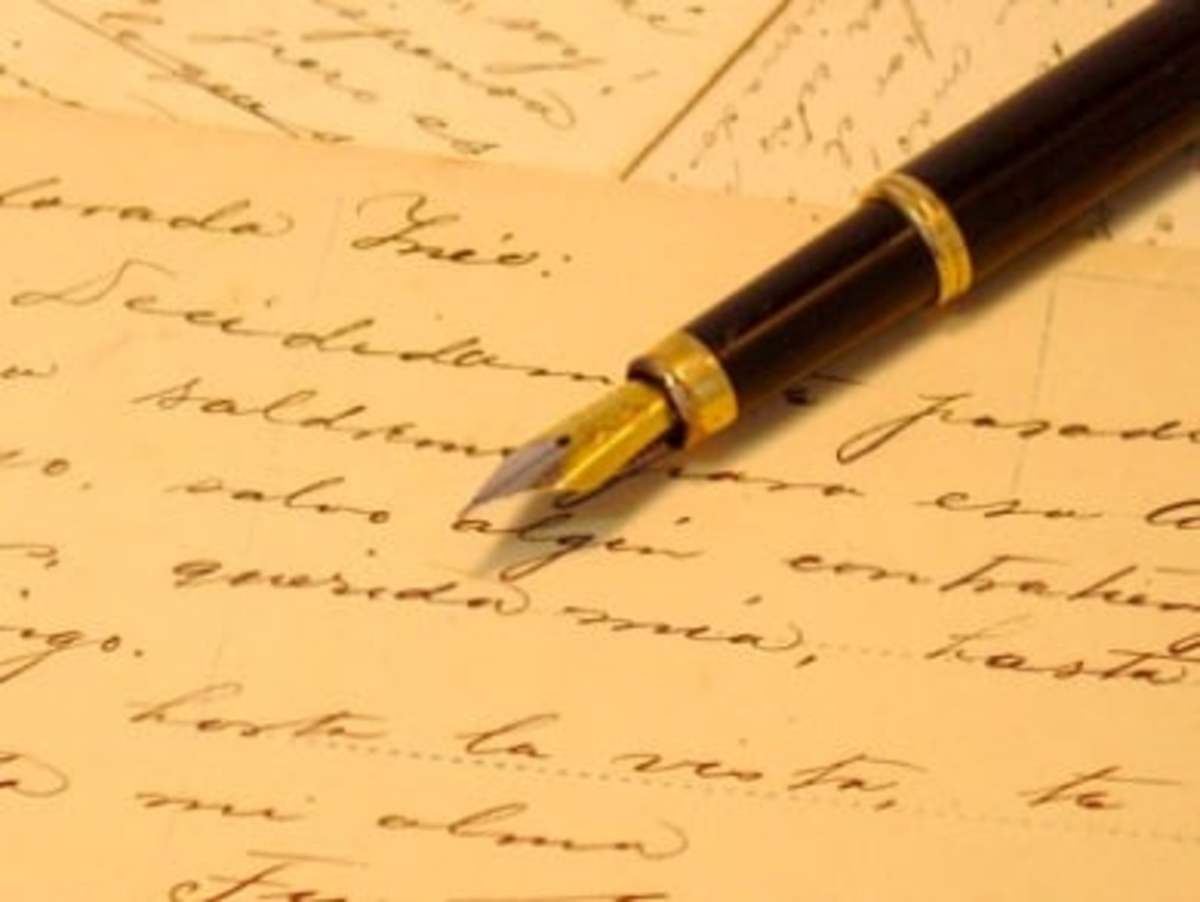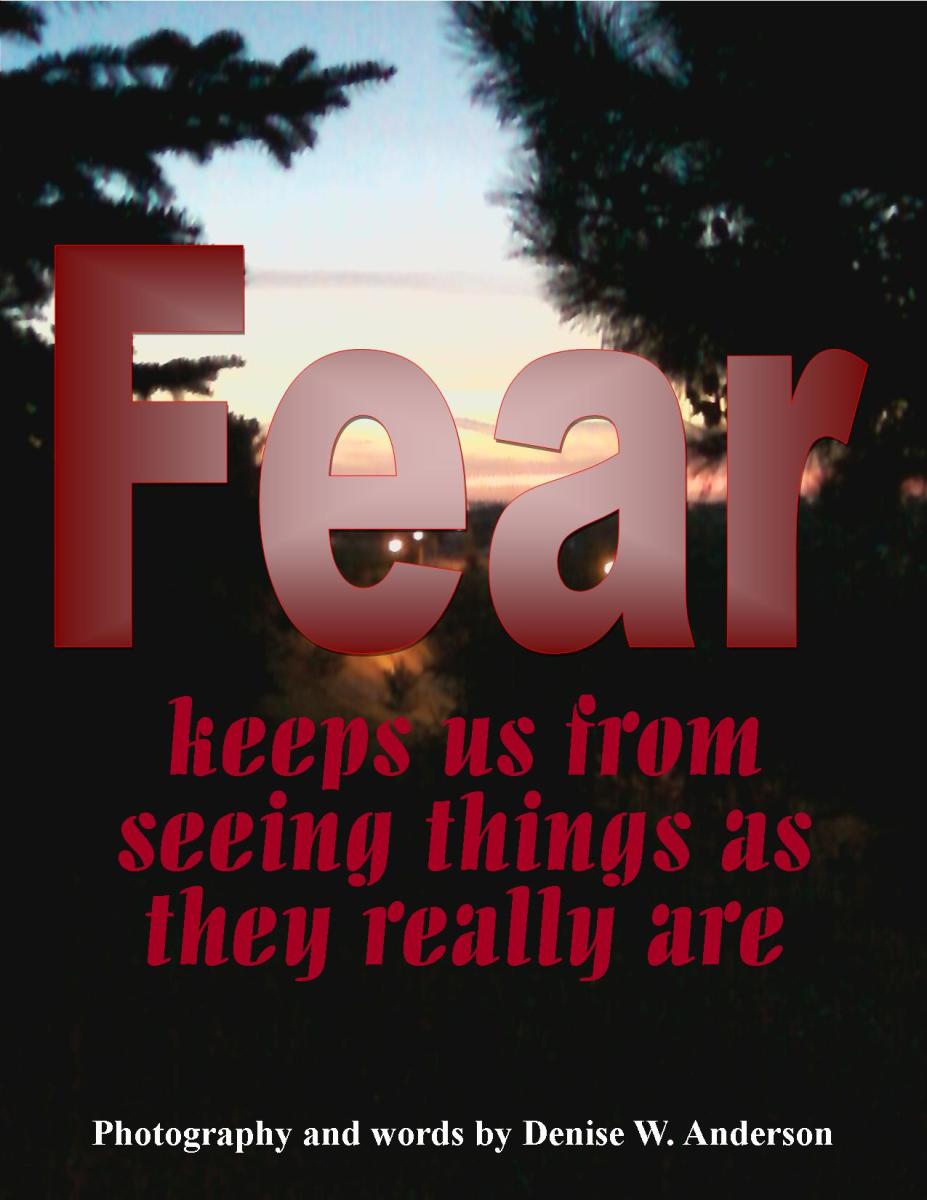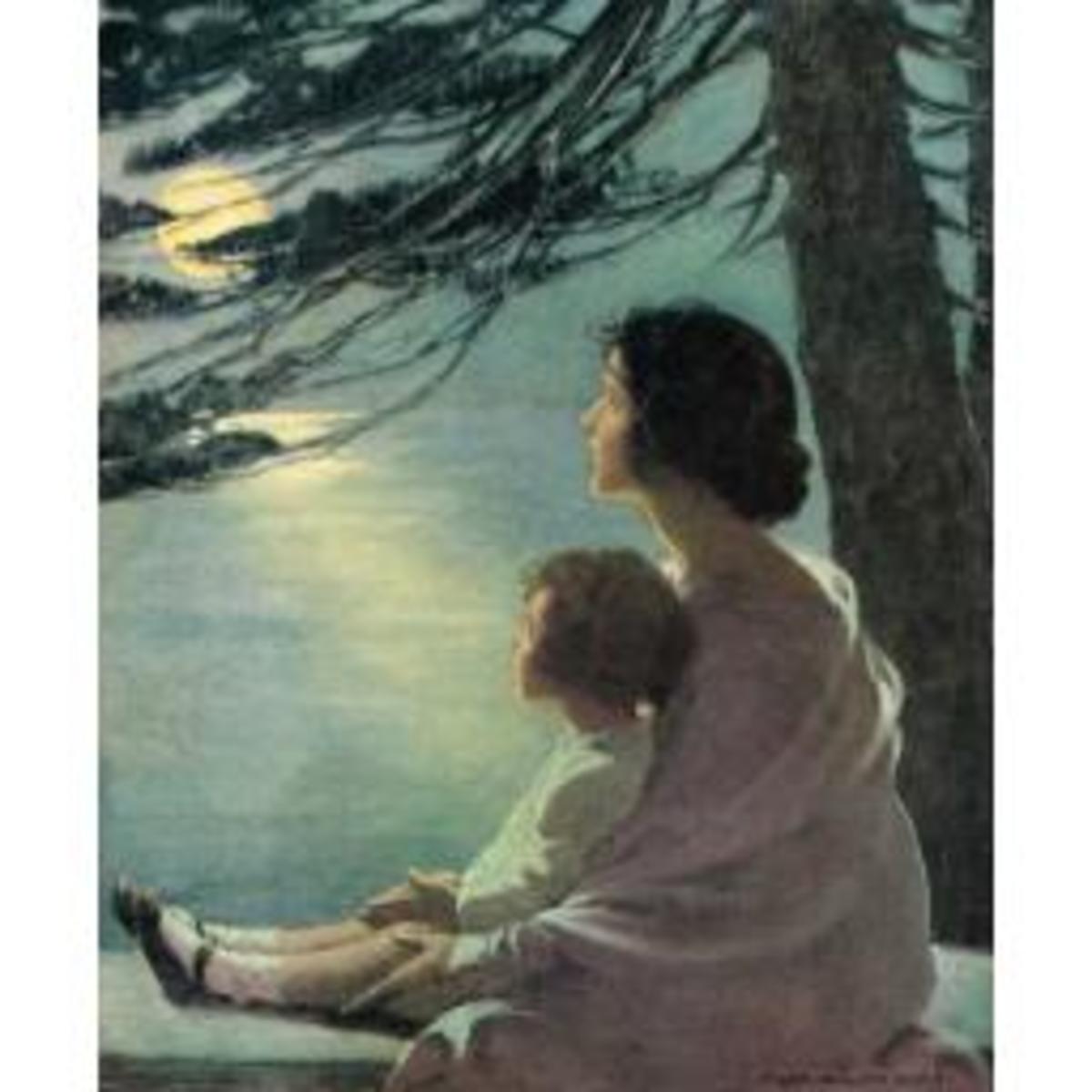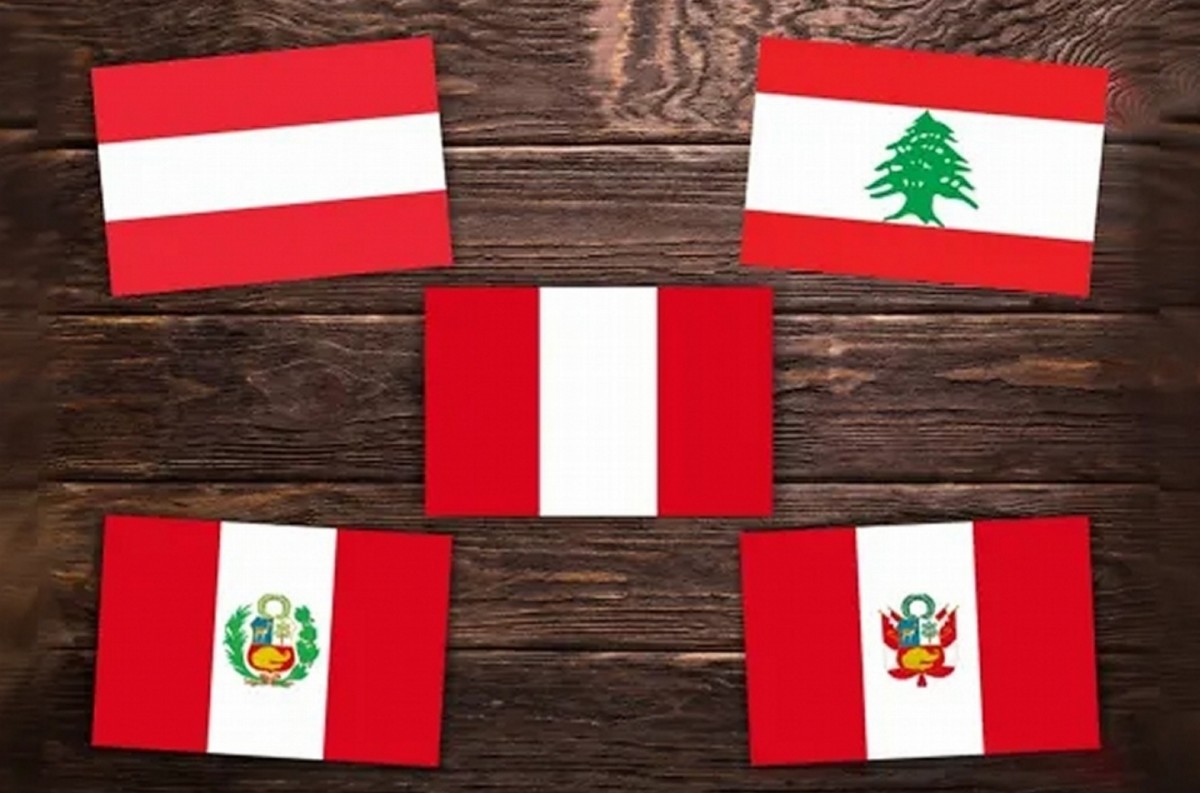Sequential Sonnets on Beauty and Ugliness
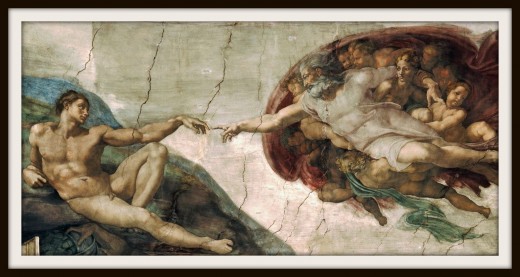
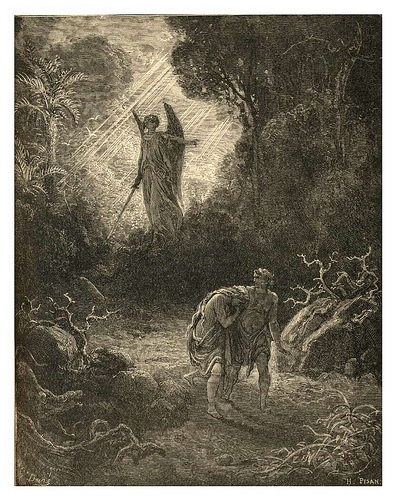
The Creation
Born in creation is beauty; He saw
Men compare to calm seas, women to soft
Valleys and rolling hills. The beastly jaws
Of Sin and Vice, however rude or sly,
Latched its dull self upon the sleeping sky
And thus dissolved cool blues into cold greys.
His people—young and fresh—began to cry.
Deep beneath Man’s conscience was a tempest,
And hidden within Mother’s breast, unrest.
The fiery lakes burned close to Earth’s crust
And He—whom beauty rose and Man he blest’d—
Sought to cleanse the land’s sins for it was Just.
So God made chaos to balance the Earth
And Ugly was made for Beauty’s worth.
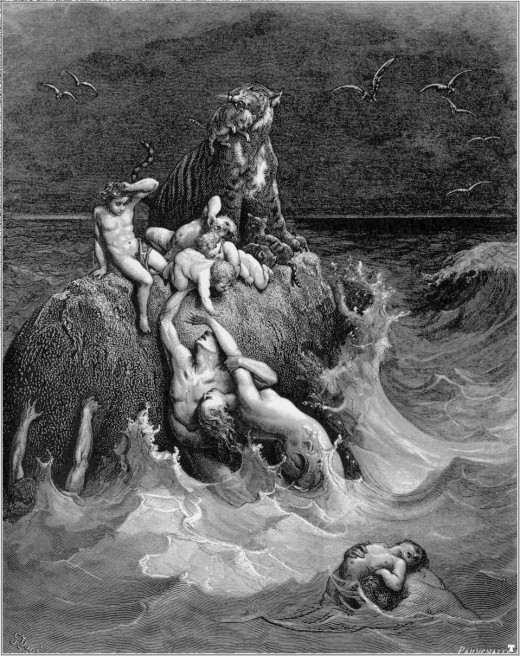
The Connection
Ev’r since the day the sky began to cry
And his hard ruling hand fell with such a
Power to desolate and leave to die
His most corrupt and beloved creations—
The heavenly laws of His land were, for
All ages, tied to the beating heart of
Satan’s leviathan; those pulses tore
The Earth in seven parts. Perhaps some Love
Could someday bridge the fissures created,
But Wisdom could never stretch the distance
Between the East and West. Man sedated
Lied unbeknownst of his existence,
Nor his past. The secrets of love and life
Were forever blurr’d by struggle and strife.
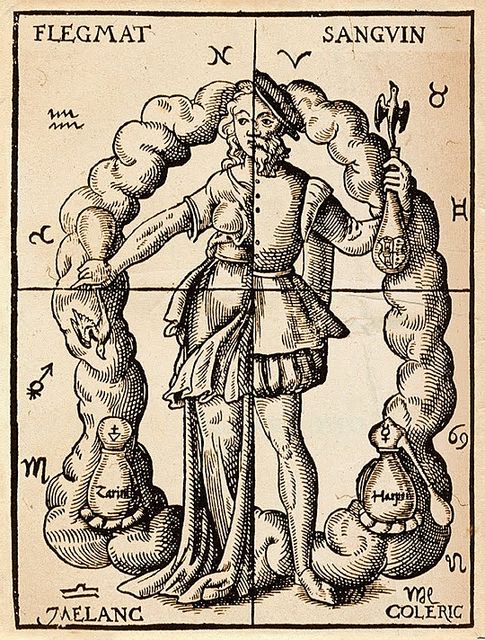
The Condition
The state of Man was bleak; shaken to the core
And lead astray, their memories were lost
As they—for forty days and nights—were toss’d
Relentlessly over dark waves. Tears pour’d
As Man’s meek wooden ship was rock’d and sored
And all the passenger’s sunken eyes were glossed
With shame and defeat. Their will to live lost
To those Deathly desires from exhaust.
And so humanity’s mind became sick.
When lustrous eyes became filled with blood;
When vibrant lungs became filled with thick phlegm;
When nourished marrow became choleric;
When melancholy rushed course like a flood
Through the meandering veins of Man’s heart.
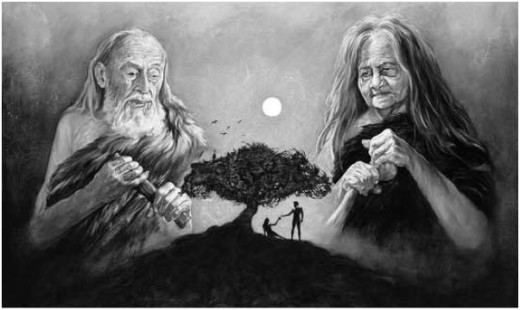
The Cycle and its Consequences
Their skin began to sink rotten with age.
Youthful complexions damned with dark shading.
White teeth quaked crooked in their yellow cages.
Their dying souls and frail frames were fading.
Frowns encrusted on their faces just waiting
Just waiting for the dying of the light.
In their hearts they lay siege, always raiding,
Against the tyranny of Man’s reason.
O Beauty! Why thou cycle like seasons?
Dost thou’st value increase from those unblessed
With proportion? From those whose looks are treason
To aesthetic law? Those with less
A prideful figure are always haunted
By life or blood: flaunted yet unwanted.
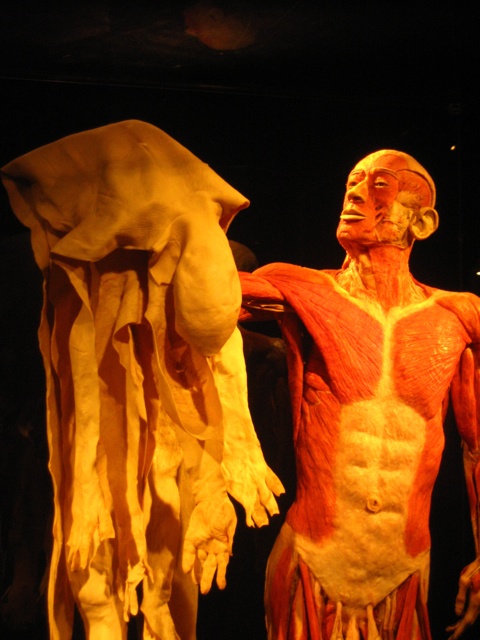
The Cover and the Contents
The grotesque spectacle is kept in mind
With no efforts to preserve its nature.
The bulging hump in Henry’s back is bind
Both to us—his viewers—and his stature,
Just as Hercules’ strength is outrageous
And we are forever in awe and fear.
O, how is the grotesque so contagious?
Our thirsting eyes devour all that’s near
And yet our pupils cannot pierce so deep
To the depths to dig for another’s soul.
Happy spirits may through a smile creep
But sorrows may burrow in slothful sleep.
Low Narcissus loved what could be displayed
But Beauty is found where shells are flayed.
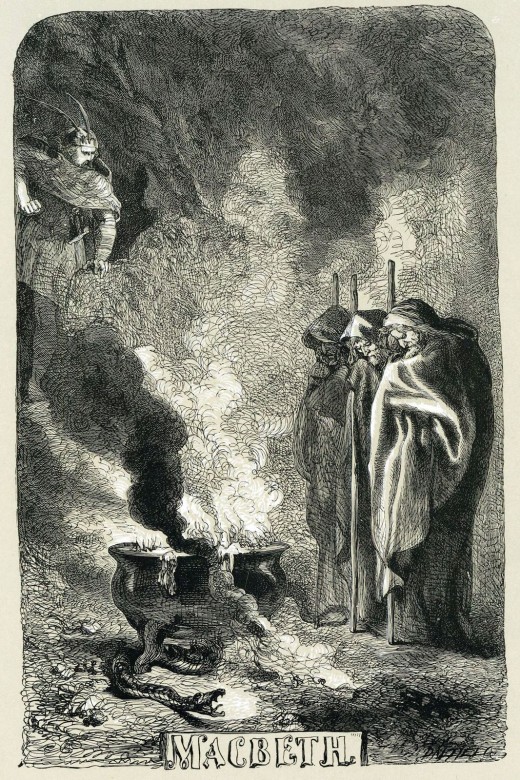
The Cycle Continued
So few like Aphrodite in her birth
Rose in ocean foams so chaste and charming.
Sweet darling she who wakes May Day morning
So swift to lock her supple neck with mirth
And flee to country coves; Her pleasures worth
A thousand suns so young and so warming
With no yonder skies of red or warning.
O, sleeping child walking on the earth
Whose gentle thoughts are sleepy flowing streams,
Why dost your idleness not preserve thee
Like a doll’s cheeks shining with brilliant beams,
Or the ancient limbs of a Redwood tree?
Hath time, the deft thief, stolen out your dreams?
Or was it woven and cut by those Weird Three?
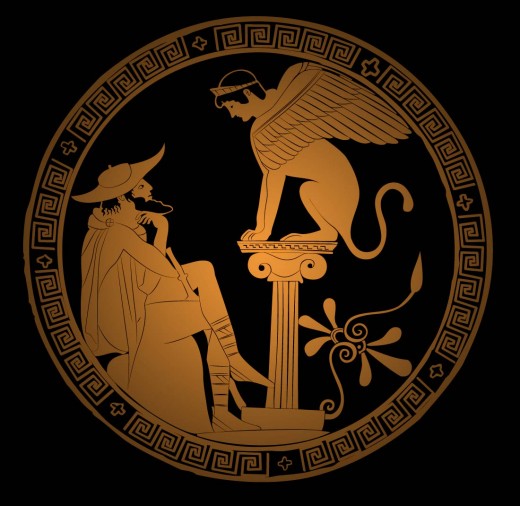
The Times of Change
So, it was morning
And she was young.
So sweet she sung
All morning long;
Her voice was strong
Just like the birds
Until her afternoon nap.
Her snores were long
Her legs grew longer:
She woke up almost two feet taller.
But her voice, her voice had changed!
“You are aging my dear,” her mother said.
At night she could hardly speak
At seventy-nine the voice is weak.
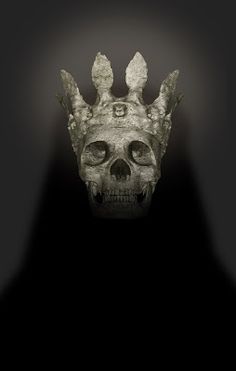
The Clothing
The masses clothe their naked villainy
Behind fine threads or jewels of precious gold.
But wicked virtues of nobility
Are measured by the laurels bought and sold.
The worthful sum of all great glories told
Must be a smattering of everything;
Although their rhetoric be clear and bold
As if from the voice came one angel sing.
Read white, not black and we are left with nothing.
Be not too shameful to open your lobes,
Lo, the tragedy of Macbeth let ring—
Devilish dastards adorned in rich robes,
To be king is to have your name immortal
But aren’t Men left bare on though Death’s portal?
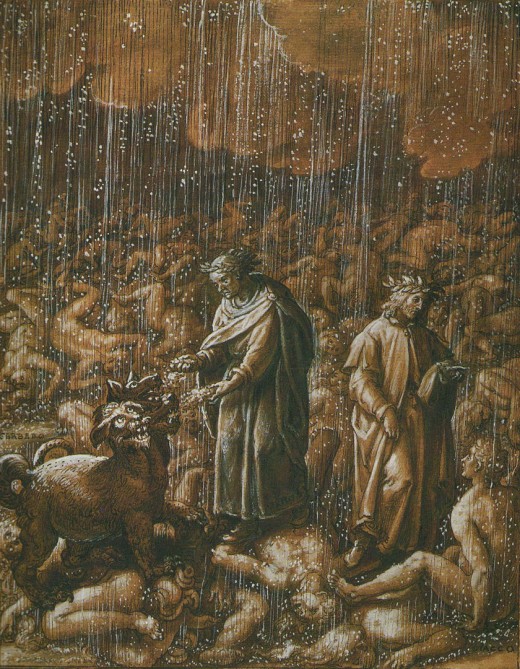
The Cravings
Inside of us a voice cries “gluttony!”
And lo! Our appetites grow with eating.
Like rabid states, our thirst is for the seas
And all the world’s fruits are for our reaping.
Yet drink wines slow for they are gracious drops,
And with clear waters do not drink whole streams.
Plenty is the land’s fat with tall green crops
But overeat ye shall burst at the seams.
Yet who can tame Fate when there’s desire,
When at every crossroads we catch fire
By the devils hand upon our shoulder
Our wants and dreams beginning to smolder?
We hunger and thirst for justice and light,
But pale ugly forces lead us to blight.
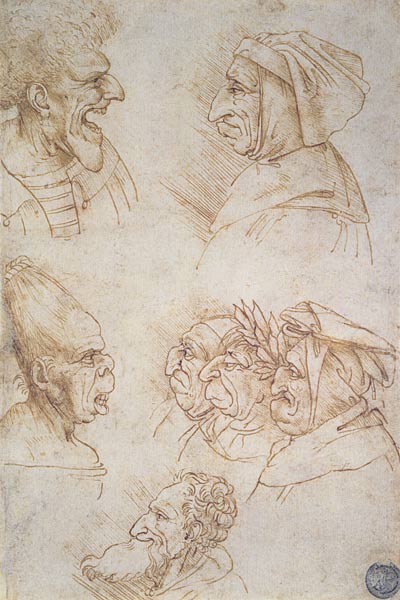
The Conclusion
From the same father’s hand they came:
The seven ugly siblings without a name
And his beloved and most famed—
The Mona Lisa: His smiling queen so fair.
How could it be that those so lame
Could share his pages and breathe that rarefied air?
In what worlds can they compare?
Tis true that she has the eyes of a Gorgon’s stare,
But those monster’s eyes petrify!
Perhaps the beauty is found in the art they wear.
Her odd shadings intensify
Those eyes like those grotesque faces terrify.
O, Wise Leonardo found the beauty
In ugly: Such is an artist’s duty.
